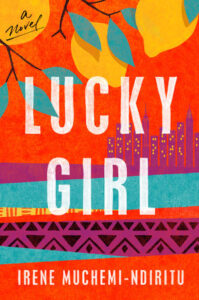
Irene Muchemi-Ndiritu on Navigating American Racism as an African Immigrant
“Being Black is not a monolithic experience.”
I was born black, and my skin color, which I did not choose, has betrayed me many times. I have been racially profiled in airports, stores, and while driving. I have learned to expect to be pulled aside, questioned, and singled out. I can predict the occurrences before they happen. These moments never get lighter. They don’t get easier with time, as you might expect a person to become used to the unpleasantness.
In contrast, they become heavier. Racial profiling is always painful. It’s disempowering. The profiler holds authority over the profiled; therefore, speaking up for myself is not a privilege I have because the repercussions of resistance are far worse than the psychological pain of disempowerment.
But—here is the thing. While I am Black, I don’t live with the crippling burden of enslavement. Being a Black African means liberation from the weight of historical systemic racism. When I say liberation, please don’t mistake my meaning as “lacking pain.” Racial profiling, discrimination, and outright bigotry hurt me. But I process that pain differently because the trauma behind it is different.
In Africa, unlike in the United States, the pain isn’t enslavement. It’s colonialism. Every African country has its colonial trauma, and the pain of oppression in 54 very different countries cannot be universalized. Kenyans, like me, have not directly lived under colonial rule in more than 50 years. But only a generation away, Kenyans were imprisoned in concentration camps by the occupying British.
Being a Black African means liberation from the weight of historical systemic racism.
But since Kenya gained independence, whites have all but disappeared from government and other positions of authority. Kenyans born post-independence grew up in a country with black leadership, teachers, doctors, and lawyers. We understand white privilege in theory but not really in practice.
So, imagine my culture shock when I arrived in the United States in 1997 to attend college and because of my skin color, race and racism became a daily inconvenience. Suddenly, I wasn’t just me. I was Black. Being Black was actually a thing?
I was incredibly naïve, not because I wasn’t intelligent, but because up until then and being only 19, I had never had to consider whether a waitress was dawdling to serve my table because I was Black and therefore assumed to be a bad tipper. I had never had a sales assistant at a clothing store following me around the aisles because I might steal.
I struggled to accept the insidious nature of systemic racism when I first arrived in the US. It was painful, it was terrifying. But I resisted believing it and letting it define me. Perhaps that is what is most frustrating about racial profiling to a Black person who hasn’t been raised with the psychological shackles of systemic racism. It was so difficult to believe that the unfair treatment I was experiencing wasn’t imaginary.
It was no accident I was reminded by the registration office that adding an extra course might affect my financial aid, even though I couldn’t qualify for financial aid as an international student. It was no mistake the college career counseling office offered up a white student over me for an internship at a prestigious publication in New York while I got the internship in Toledo, Ohio.
I went from being incredibly sure of my identity and comfortable in my skin to being bewildered. I longed to understand where my Blackness fit into this complicated society. To the white folks, I was just Black. To Black Americans, I was African, and they made it clear that I was frustratingly naïve. “You just don’t get it,” I was told, and it stung. The Africans told me, “Don’t dwell on it.”
And it was true. I didn’t have to dwell on it. I could easily disassociate and deny the reality of the discrimination because I was African. African Americans have never had this option. They have had to not only feel the pain I feel, but they have seen their parents, grandparents, and great-grandparents feel it too, and they have been told the stories of this pain since they were born, even before they could experience it themselves.
In my journey, I only started understanding the depths of racism when I immersed myself in the African American community. Through Black student organizations in college, like the National Association of Black Journalists, I began to nurture relationships with people who couldn’t deny the strangeness of things. I began to understand what living with Black skin in America does to a human being over a lifetime, and none of it is imaginary.
I began to understand what living with Black skin in America does to a human being over a lifetime.
In my new novel Lucky Girl, the protagonist, Soila, can only figure out where she fits by building relationships not with others who are like her but with those she doesn’t quite understand. First, she must unlearn all the stereotypes presented to her when she got off the plane, such as misunderstandings about poverty and criminality in the African American community. The conversation Soila has with her Kenyan American boyfriend Alex is the beginning of Soila’s journey with racism in the United States. It’s the moment she starts to question how things are.
Slowly, she realizes that to the white world, she’s simply Black, just like the Black Americans. She feels the pain of profiling with time. But Soila is still at the heart of it, African, and she doesn’t carry the historical pain of systemic racism.
Leticia, Soila’s African American best friend, tells her that she will only ever fully understand what it’s like to be Black in America when she has a son who she must worry about daily. My son, who was born in the United States and lived for some years of his childhood in South Africa—another extremely racially complex environment—now attends Morehouse College, an HBCU.
When he chose to turn down acceptances from elite white colleges, I wondered why he felt the need for the affirmations he would get at an HBCU. Why did he need to be told “You can,” “You’re great,” and “You’re smart?” Didn’t he already know these things? Hadn’t I told him this while he was growing up?
Then, I realized I was imposing my African behavior around race and racism on my American-born Black child. He and I are two different kinds of Black people. He has grown up around racism and has seen Black folks struggling to be accepted even when they are smart and diligent, even when they “speak well” and “dress well.” He has been profiled.
As much as I want to pretend my son’s life does not have to be defined by racism, there is no denying racism’s close personal effect on a night when I can’t fall asleep because I know he’s out late in downtown Atlanta with his friends at the Drake concert. I must live with the reality that my son is an endangered species every morning when he walks out the door.
At his age, as an African immigrant to the US, I didn’t need to attend an HBCU; I didn’t need affirmation. I knew I could do anything just as well as any white person in the room. But my son doesn’t always know it. Sometimes he might doubt himself and believe the lies he is told—that he only “got in” because he’s a minority.
Sometimes he might get angry when things happen to him that aren’t happening to his white friends, and he might want to hit back unwisely. Being Black is not a monolithic experience, and I see some of the infinite individual ways within my own family. I hope, in reading Lucky Girl, that others begin to see them, too.
__________________________________

Lucky Girl by Irene Muchemi-Ndiritu is available from Dial Press, a division of Penguin Random House, LLC.
Irene Muchemi-Ndiritu
Irene Muchemi-Ndiritu was born and raised in Nairobi and moved to the United States to attend college in 1998. She has an MA in journalism from the Graduate School of Journalism, Columbia University and has worked as a journalist in New York City, Washington D.C., and Boston. She later received an MFA in creative writing from the University of Cape Town, graduating with distinction. Her fictional work has been published in Yale Review and Adda and she has been shortlisted for the Commonwealth Short Story Prize. She currently lives in Cape Town, South Africa. Lucky Girl is her debut novel.



















